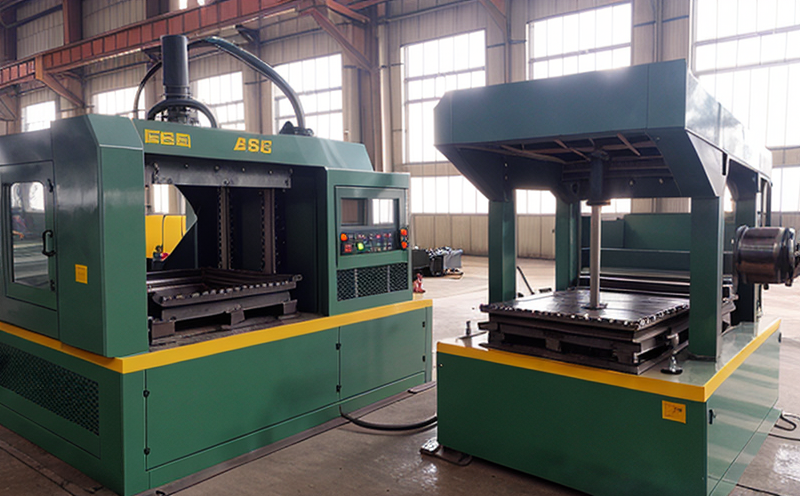ISO 4986 Magnetic Particle Testing of Forged Steels
The ISO 4986 standard establishes a comprehensive framework for magnetic particle testing (MPI) to detect surface and subsurface defects in forged steels. This service is critical for industrial manufacturing, especially in sectors like automotive, aerospace, and heavy machinery where structural integrity and safety are paramount. The process involves applying a magnetic field to the test specimen followed by the application of ferromagnetic particles that gather at defect sites due to leakage fields.
The testing procedure begins with thorough preparation of the forging sample, ensuring it is clean and free from oil, grease, or other contaminants that could interfere with particle detection. The forging must also be free from surface damage such as scratches or burrs. Once prepared, a magnetic field is generated using either a portable magnetizing unit or an electromagnetic yoke. The intensity and duration of the magnetic field are crucial for effective testing.
The application of ferromagnetic particles follows, typically through spraying or brushing. These particles will reveal any discontinuities in the metal surface when subjected to the magnetic flux. After inspection, the test specimen is demagnetized and cleaned before being returned to service. The results of this MPI are detailed in a comprehensive report that includes defect descriptions, location, severity grading, and recommendations for necessary corrective actions.
Magnetic particle testing (MPI) adheres strictly to ISO 4986 guidelines, which outline specific acceptance criteria for different types of defects. For instance, the standard allows for certain levels of surface inclusions or micro-cracks within specified limits but requires immediate rejection if there is any indication of a through-thickness defect.
For industrial manufacturing processes involving forging, MPI plays an essential role by ensuring that critical components meet stringent quality standards before being incorporated into complex machinery. This service supports the overall reliability and safety of products across various industries, contributing significantly to operational efficiency and customer satisfaction.
Incorporating ISO 4986 into your quality control protocols enhances product integrity, reduces potential risks associated with flaws in forging materials, and aligns with global best practices endorsed by international standards bodies. By leveraging this technology, manufacturers can maintain compliance with industry regulations while enhancing their reputation for excellence.
International Acceptance and Recognition
- The ISO 4986 standard is widely accepted across numerous countries including the United States, Canada, Europe, Asia-Pacific regions, and beyond. Its broad adoption underscores its value in ensuring consistent quality in magnetic particle testing globally.
- The American Society for Testing and Materials (ASTM) also recognizes this standard through related specifications such as ASTM E1444-05a, further validating its relevance within North America’s industrial landscape.
Environmental and Sustainability Contributions
- Magnetic particle testing does not generate significant waste products or require hazardous chemicals; thus, it aligns well with sustainable manufacturing practices. It minimizes environmental impact compared to other destructive testing methods.
- The service contributes positively by promoting the use of high-quality materials without compromising on safety standards, thereby extending product lifecycle and reducing resource consumption.





